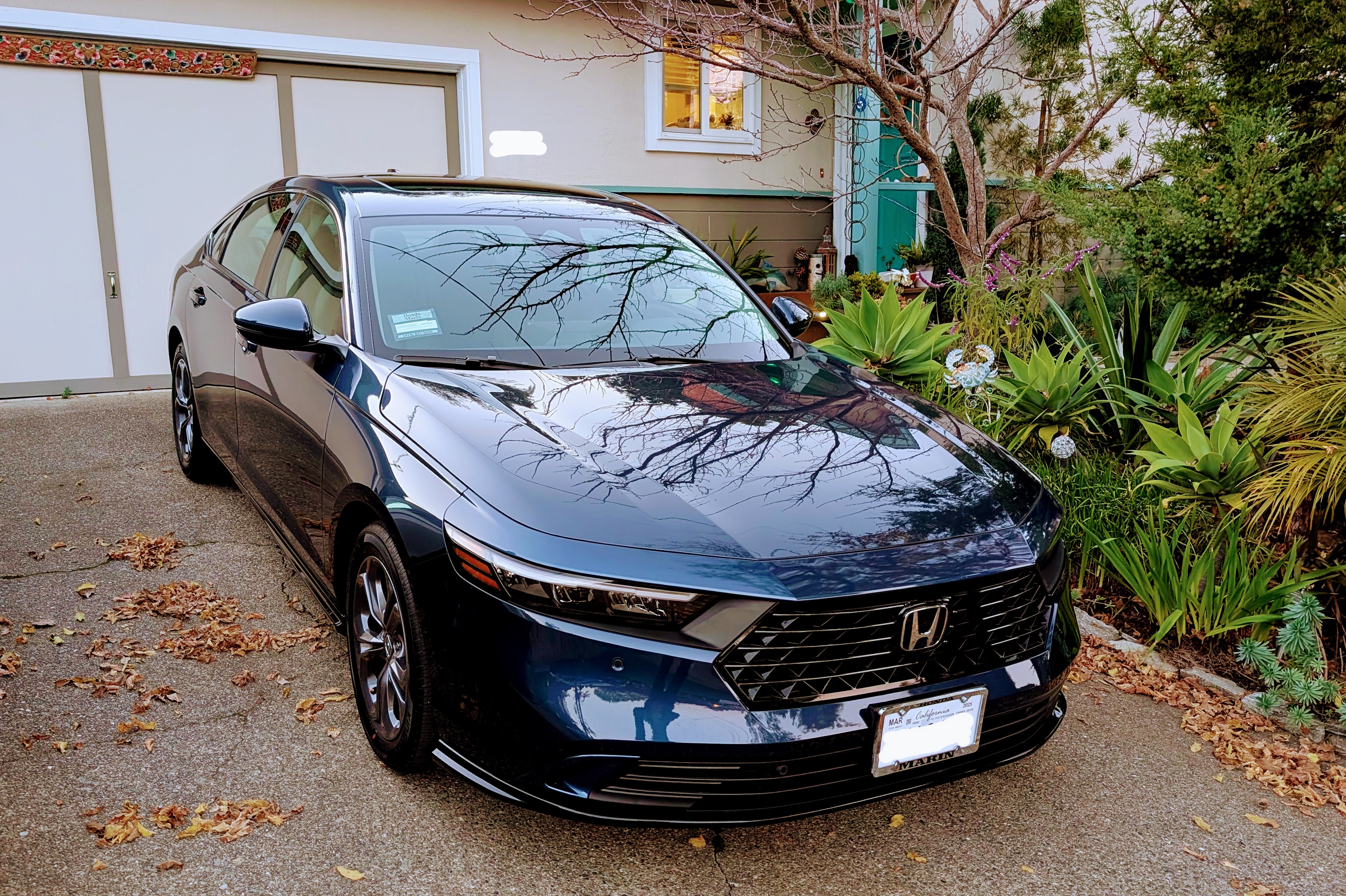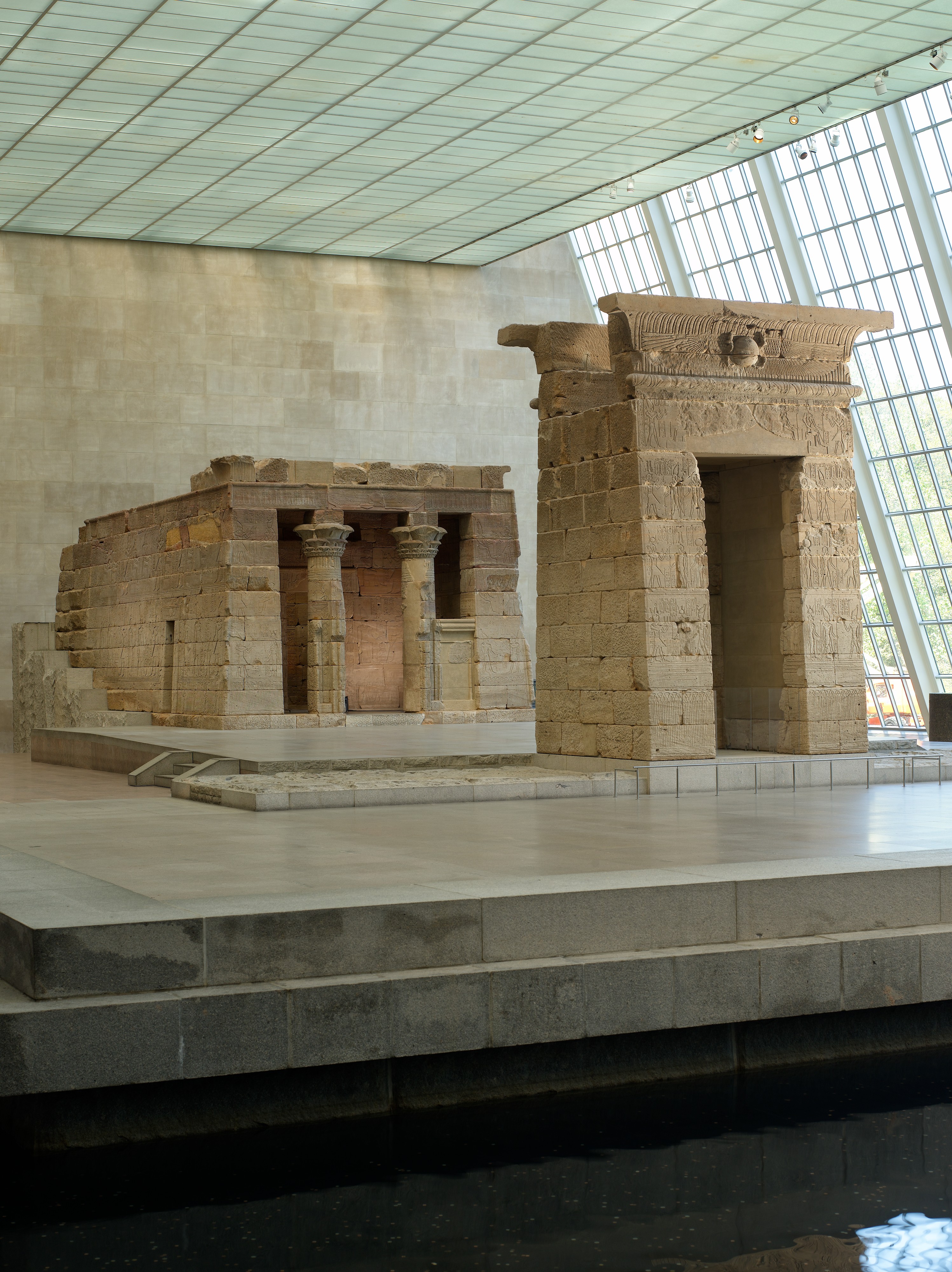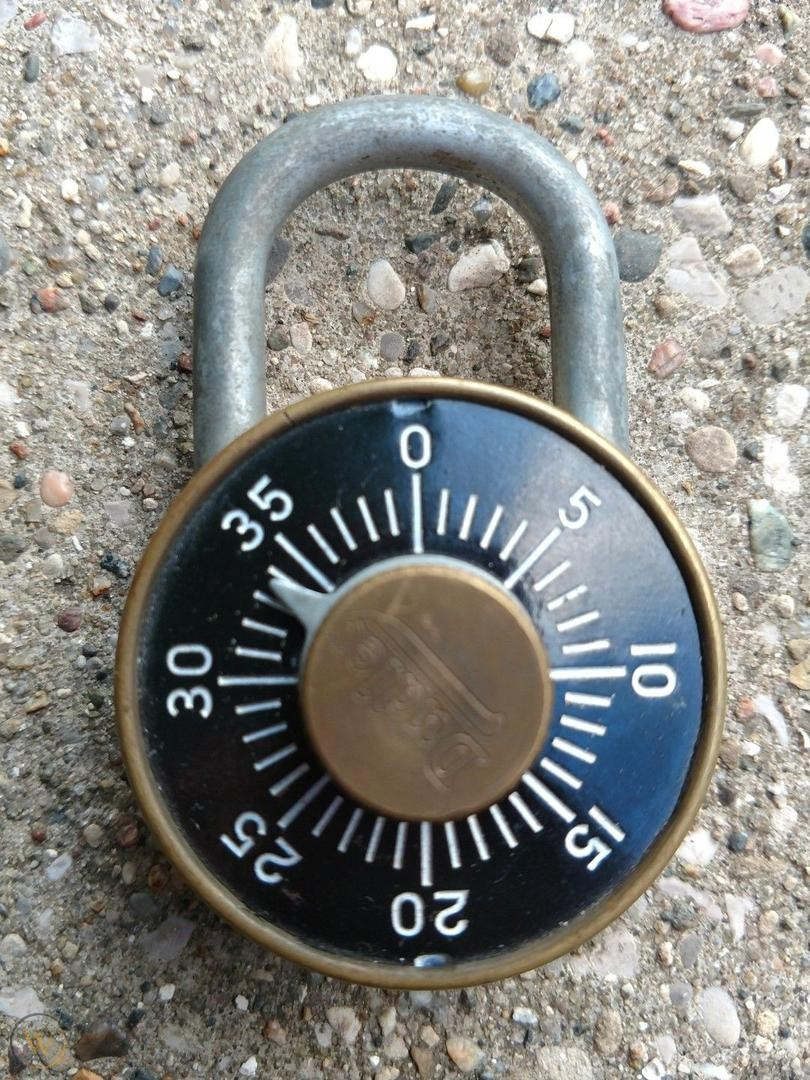Jaws, the original summer blockbuster, turned 50 this month. I’ve been alive for that whole time. And yet I’ve only just noticed that the J in Jaws is a fishhook.
(Previously.)

Americlecticintellectica
Jaws, the original summer blockbuster, turned 50 this month. I’ve been alive for that whole time. And yet I’ve only just noticed that the J in Jaws is a fishhook.
(Previously.)

My dad was thirty when I was born, so a few years ago I had the opportunity to send him this for his birthday. Happy Father’s Day in heaven, Dad!
(Stick with it, it’s worth it.)
The counting system we normally use is called “base ten.” It uses ten distinct digits (zero through nine), and the columns of a multi-digit number are powers of ten. The rightmost column is “ones” (1 is 10 to the power of 0), the next column is “tens” (10 to the power of 1), the next column is “hundreds” (10 to the power of 2), and so on.
Example: the number 412 is understood as “four hundreds plus one ten plus two ones.”
Base ten is convenient for humans, who have ten fingers to count on. But it’s inconvenient for computers, which count using “bits,” each of which is a microscopic on-off switch. This makes it more convenient for computers to count in “base two,” which uses two distinct digits (zero and one, corresponding to a bit that’s off or on). The columns of a multi-digit base-two number are powers of two. The rightmost column is still “ones” (because 2 to the power of 0 is 1) but the next column is “twos,” then “fours,” then “eights,” then “sixteens,” and so on.
Example: the base-two number 110011100 is understood as “one 256 plus one 128 plus one 16 plus one 8 plus one 4” (which is the same as the base-10 number 412, by the way).
As you can see, base two requires many more columns than base ten to express the same number. Computers don’t care about that – but the people who work with computers do. Base two counting is very inconvenient for them. But converting back and forth between base 10 and base 2 is onerous, because even computer nerds don’t like doing unnecessary arithmetic.
One common solution is to deal not in base two or in base ten but in base eight. Base eight uses eight distinct digits (zero through seven) and the columns of a base-eight number are “ones,” “eights,” “sixty-fours,” and so on.
You might think that adding yet another counting system is a needless complication, but the cool thing about base eight is that each group of three base-two digits always corresponds to the same base-eight digit:
| Base two | Base eight |
| 000 | 0 |
| 001 | 1 |
| 010 | 2 |
| 011 | 3 |
| 100 | 4 |
| 101 | 5 |
| 110 | 6 |
| 111 | 7 |
This makes converting between base two and base eight easy. Just take three base-two digits at a time (from right to left) and replace them with their base-eight counterpart:
110011100 -> 110 011 100 -> 634 (which is the base-eight version of 412).
Base eight is often called “octal,” and base ten is often called “decimal.” Now you have enough information to understand this old programmer’s joke:
Q: Why is Halloween like Christmas?
A: Because OCT 31 = DEC 25!
But we’re not done. Base eight is handy, but not as handy as it can be, because as you probably know, computer memory is divided into bytes, and each byte is eight bits long. You can’t evenly divide eight bits into groups of three. And there’s some ambiguity when you string together multiple bytes in a row. Suppose you’re dealing with these two bytes:
11010001 10011100
Should you group these sixteen bits into threes like this:
11 010 001 10 011 100 -> 321234 (base eight)
(where each byte is grouped into threes separately) or like this:
1 101 000 110 011 100 -> 150634 (base eight)
(where all sixteen bits are strung together and then separated into groups of three)?
To avoid these problems, it’s more common for computer folks to use not base two, not base ten, and not base eight, but base sixteen! Base sixteen has sixteen distinct digits: zero through nine as in base ten, then A for a single-digit “ten,” B for a single-digit “eleven,” C for a single-digit “twelve,” D for “thirteen,” E for “fourteen,” and F for “fifteen.” The columns of a base-sixteen number are “ones,” “sixteens,” “two-hundred-fifty-sixes,” and so on.
In base sixteen, 412 is written as 19C. (One 256 plus 9 sixteens plus twelve.)
Like base eight, base sixteen – which is also called “hexadecimal” (or “hex” for short) – is easily converted to and from base two, because every group of four base-two digits corresponds to a base sixteen digit.
| Base two | Base sixteen |
| 0000 | 0 |
| 0001 | 1 |
| 0010 | 2 |
| 0011 | 3 |
| 0100 | 4 |
| 0101 | 5 |
| 0110 | 6 |
| 0111 | 7 |
| 1000 | 8 |
| 1001 | 9 |
| 1010 | A |
| 1011 | B |
| 1100 | C |
| 1101 | D |
| 1110 | E |
| 1111 | F |
And grouping base-two digits four at a time instead of three at a time makes it very natural to represent any eight-bit byte as a two-digit hexadecimal number.
11010001 10011100 -> D1 9C
Now for the punchline of this nerdy shaggy-dog story. This year you are turning 80 and I am turning 50. And DEC 80 = HEX 50!
This is the kind of thing that makes nerds like me turn cartwheels of joy. And before you roll your eyes or shake your head, let me just remind you of who raised this particular nerd.
Happy birthday, Dad. I love this numeric coincidence, but not as much as I love you.
In the latter part of this year I ramped down my posting on Facebook (as I had previously done on Twitter) in favor of BlueSky. Time to get serious about resisting the oligarchs. [Previously.]
We all miss you Dad.
I relinquished the Wine-Dark Shark to my son for use at college and beyond. After all, I was working from home, and for our now-modest transportation needs, my wife and I were easily able to share her Volkswagen. What did I need with a car of my own?
Plenty, it turns out. Just maybe replace “need” with “want.” Presenting the Roads Scholar, a 2025 Honda Accord EX-L hybrid in Canyon River Blue Metallic.

The era of social media is on the wane, and here’s the proof: I wrote far fewer Facebook (and other) posts and comments than in years past, and instead of spending the last few days of 2023 recapping them like I usually do, I felt no urgency to, and did other stuff instead.
Scientists, last month: harvest freshwater at sea. Researchers Want to Try Harvesting Fresh Water From Ocean Vapor
Me, 2007: harvest freshwater at sea. Save the World With Admiral Bob
In 2016 I took a memorable trip to New York City with my colleagues from Chain. Nasdaq and Chain cohosted a conference to educate finance nerds about blockchain technology.

We spent the weekend before the conference doing fun New York things, together and separately. On Saturday morning we got a wonderful docent-led tour of the Metropolitan Museum of Art. A highlight of that tour was the Temple of Dendur, a three-thousand-year-old Egyptian structure donated to the U.S. in the 1960’s. It is exhibited in a special gallery at the north end of the museum, whose north face is a canted glass wall. Our tour guide asked if any of us could guess why. I speculated that a wealthy patron wanted to be able to see it from their nearby Fifth Avenue penthouse. I was exactly right, and got a high-five from the guide. Jacqueline Kennedy was instrumental in securing the temple for the Met, beating out the Smithsonian and other sites, and got to gaze down at it for years afterward. (Her passion for it derived from the efforts she and JFK made during his presidency to rescue Egyptian antiquities from destruction due to the Aswan Dam. The gift of the temple from Egypt was in gratitude for that.)
Later in the day we were talking about the musical Hamilton, which was then a brand-new and unprecedented sensation. Only our CEO Adam had seen it, on a New York trip a few months before, but it captivated him and he brought it up often. A line from one of its songs — “In the face of ignorance and resistance I wrote financial systems into existence” — appeared at the bottom of our company stationery, since it is what we imagined we ourselves were doing. I mentioned that I’d pieced together some things I’d read about the show’s creator and star, Lin-Manuel Miranda, to conclude not only that he’d attended my old high school, but that he’d developed his performing and playwriting skills as part of The Brick Prison Playhouse, the repertory group that my friends and I created there in the early 80’s. (I had only recently become aware that The Brick Prison Playhouse still exists.) My colleague Boyma gave me a high-five on hearing that news.
At dinner the topic of childraising came up. Almost all of my colleagues were young and childless; I was the old man of the group. Thanks to nieces and nephews, godsons and -daughters, babysitting gigs and the like, everyone had some child-caregiving experience to share. Uncommonly kind and positive as this group was, their stories nevertheless tended toward the kids-are-frustrating-and-exhausting end of the spectrum. So I chimed in: everything worthwhile takes energy and effort; the rewards vastly outweigh the challenges; and as my mom told me when I first became a parent, it just keeps getting better. My colleague Oleg — the one other parent of the group — loved this sentiment so much he high-fived me.
To be clear, my usual number of unsolicited high-fives in a day is zero. April 9th, 2016 was a significant outlier.
Postscript. At the successful conclusion of the conference at Nasdaq’s headquarters, Adam marched us three blocks uptown to the Richard Rodgers theater for a group viewing of Hamilton. It blew our minds — the show itself, of course, but also that Adam was even able to do this for all of us. Those were the hottest tickets in town, and the scarcest, and the priciest. To this day I have no idea how he did it.
Not bad, 2022, not bad. Military aggressors and self-important blowhards pwning themselves; wrongdoers held to account; monopolies declining; voting rights, climate solutions, and labor on the rise. 2023 are you paying attention? (Previously.)
[Friend comments, “Fuck this shit” when Betty White dies right at the end of 2021.]
I like how another FB friend put it: “History will align the end of this dark period with the passing of Betty White. She sacrificed herself to usher in a new era of health, joy, and kindness.”
When the year fails to acquit itself well, it is my self-appointed duty to compensate with witticisms and clever observations. (Previously.)
Not everything in 2020 was bad.
Not everything in 2021 will be good.
Also, it's foolishness to assign credit or blame for events to the calendar.
Still happy to have 2020 behind us. Happy new year!

When I started high school, my dad gave me his old combination lock to use on my locker: a vintage Dudley. It stood out among the identical modern Master locks that most of my classmates had, and I was proud of it.
That lock followed me to college, where it sat mostly unused until I decided, some time in my senior year, that I was getting flabby and needed to start exercising. At that point I began swimming laps regularly, and I used the lock to keep my swim things in a locker at the gym.
I graduated, but I remained at college for work, and I started dating Andrea. (Today, that woman is my wife.) She took more and more of my attention, of course, and I got to the pool less and less often. Still I kept my swim things in the locker there.
At the end of the spring semester, 1989, everyone had to clear out their lockers for the summer. It would have been easy to do − my office was just on the other side of campus − but not yet having learned how to balance work, girlfriend, and other responsibilities and pursuits, I kept putting it off. When I finally got to the pool I discovered I was too late. The lock had been removed and the locker emptied.
I didn’t care about the swimsuit or the towel. But I was devastated to have lost the lock. I thought of it like an heirloom and was consumed with guilt. I live with the echoes of that feeling even today.
The good news is that that lesson is part of what helped me shape up into a more responsible adult.
Seldom has a year been more unloved
Or with such relish on the trash-heap shoved.
(Previously.)
Achievement unlocked: roman candles IN ROME.
[Friend in Rome complains of not knowing I was there.]
You and I appear to have the same policy of not telling Facebook we're out of town until after the fact.
Anyway, we were there as part of the Varsity All-American Rome Tour (https://rome.varsity.com/) and their itinerary kept us pretty busy.
Buon anno!